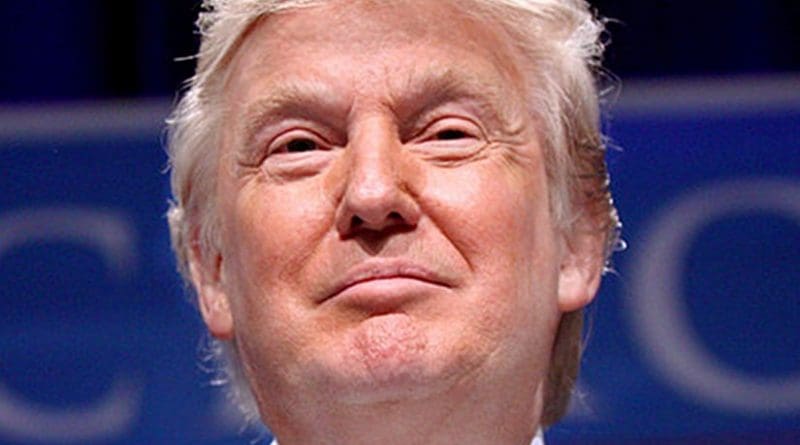Trump’s Russian ‘Charm Offensive’ And US’s China Containment Strategy – OpEd
Here is one simple yet profound reason why Donald Trump may become the next US’s president: Because with all the appearances of a political novice, the Trump candidacy contains the seeds of a global strategy, aimed first and foremost at China, that his rival, the Democratic candidate Hillary Clinton lacks.
Compared to Clinton’s ‘business as usual’ approach that promises to closely follow the footsteps of Obama’s presidency, Trump is a hawkish foreign policy ‘revisionist’ who brings to the forefront a distinct possibility of introducing a real wedge between China and Russia as a result of Trump’s aversion of any Russia-bashing approach.
But, will it work? China and Russia are, after all, pretty close to each other, strategically speaking, united under the umbrella of both BRICS nations as well the Shanghai Cooperation Organization, not to mention their substantial bilateral energy and non-energy trade. Nonetheless, there are reasons to question the depth and scope of their strategic partnership and future outlook of their closeness, partly as a result of US’s counter-strategy.
For the moment, US’s Russian strategy has operated rather successfully. Over the past three to four years, the Russian economy has suffered a great set back due to the combination of Western sanctions and the falling oil prices, which was partly precipitated as a result of a willful “oil conspiracy” by US and Saudi Arabia, targeting Iran and Russia simultaneously.
As a result, Moscow today barely dares to boast like an emerging superpower challenging the existing western-centric capitalist order and, by all accounts, has been shrunk to size, reflected in Putin’s recent interview with CNN’s Farid Zakaria, when he for the first time acknowledged US as the only existing superpower. In other words, enough punishment please.
Still, the powerful combination of Russia’s military might and China’s huge economy pose serious challenge to US’s global hegemony to warrant sustained pressure on Russia, in order to cause a re-orientation, away from China and toward the West. Some of US’s cards on Russia-China are played by regional client states, such as Saudi Arabia, which has now entered into an energy production agreement with Russia. How this will impact Russia’s Middle East policy will be known not too long from now, given the various nuances of Russia’s foreign policy that seeks to balance competing interests, e.g., with respect to Iran, Israel, and Saudi Arabia.
What is certain, however, is that if Trump wins the elections and then continues with his charm offensive toward Moscow, then Putin may reciprocate — at China’s expense. In turn, this may explain why China could up the ante against the West, e.g., through North Korea and its nuclear sabre rattling. In the Asia-Pacific theater of competition, Russia relatively speaking lacks an intrinsic interest, whereas it is vital for China, which feels the heat of US’s expansionism.
Henceforth, should China lose some of its confidence in geostrategic proximity to Russia, as a result of Trump’s charm offensive, then this will be a big plus for US’s containment strategy vis-a-vis the next global superpower that is bound to challenge US’s hegemony in the decades to come. What Trump may offer Putin, such as lifting the sanctions and coming to terms with Putin’s annexation of Crimea, might be too appeasing to some Americans, particularly the democrats, yet it fits US’s long-term strategy that is geared to splitting the China-Russia duet and luring the latter, which is plagued with economic problems despite a robust military.
Of course, it takes more than a charm offensive to trigger a strategic re-orientation on the part of a big power, which is why Trump’s strategy is like a raw recipe for action that misses several key ingredients before it is shaped as a full course meal. Still, the main outlines of a clever anti-China strategy can be detected in Trump’s candidacy, which is a lot more than can be said about Hillary Clinton.

